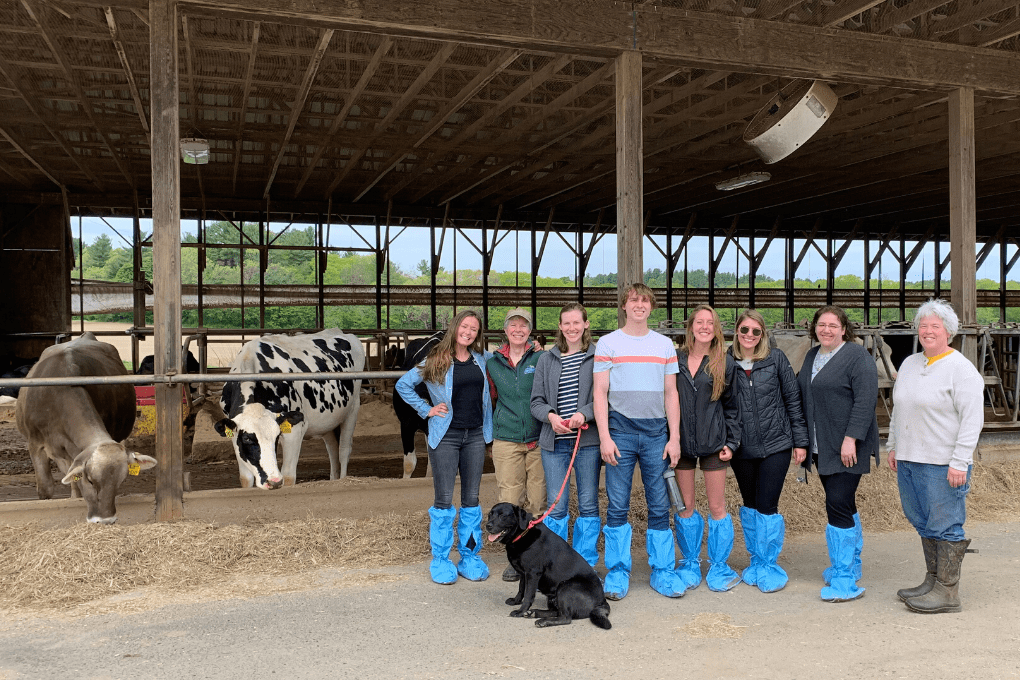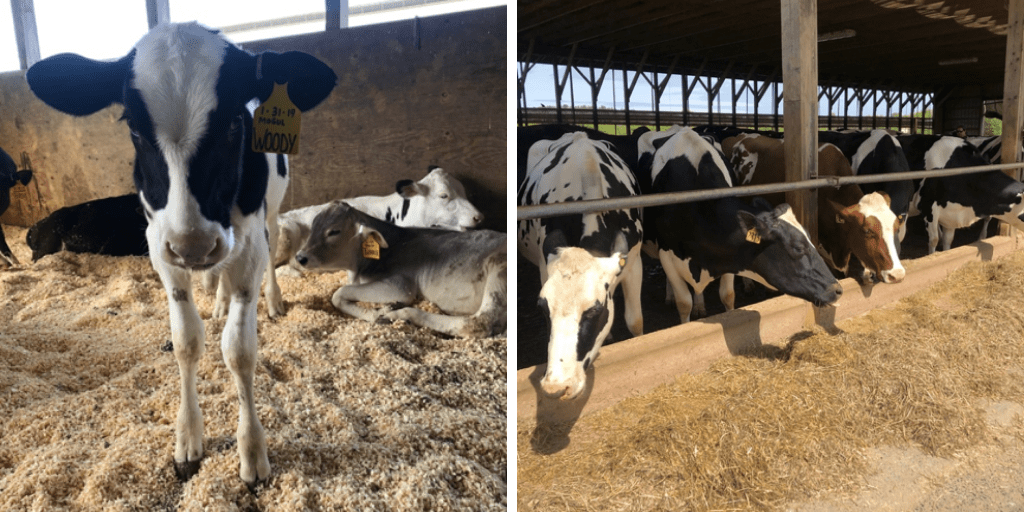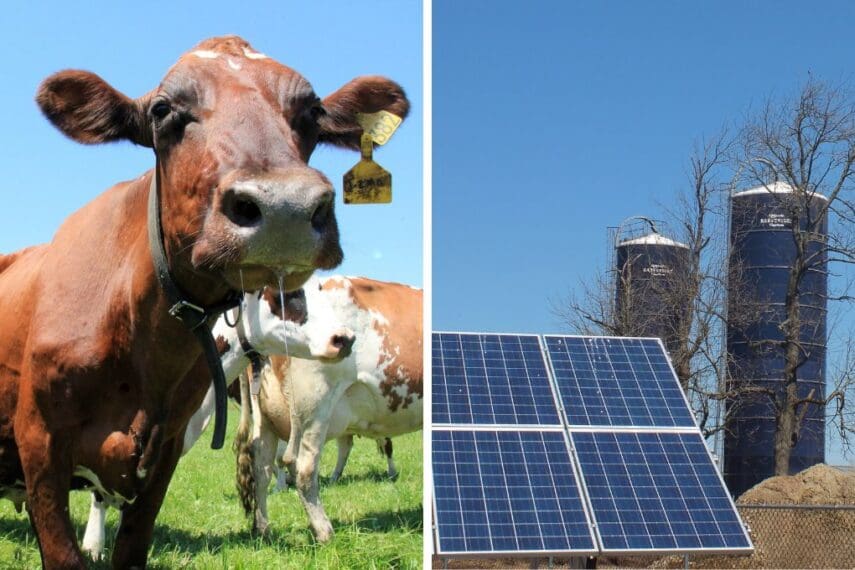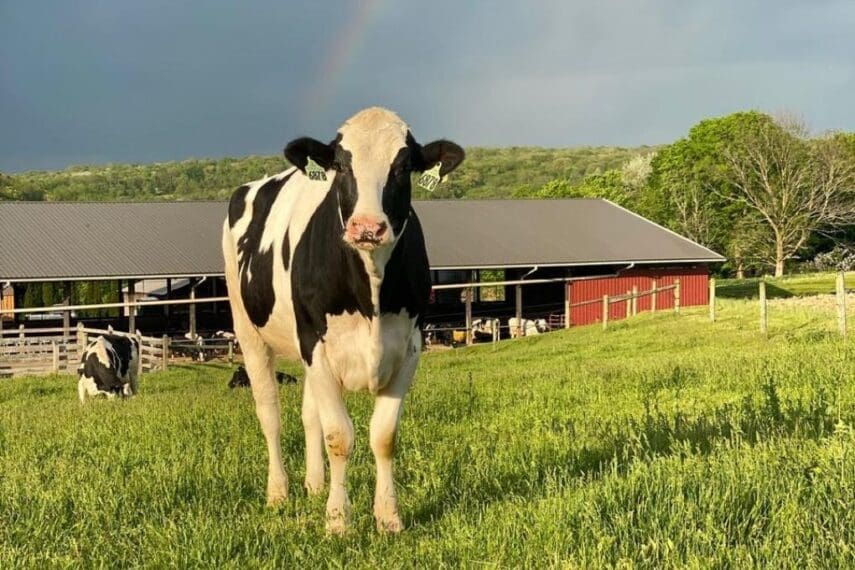
Adorable animals, delicious dairy products, welcoming dairy farmers, and a learning experience like no other.
As a dietetic intern at the University of New Hampshire, I visited Stuart Farm in Stratham, New Hampshire and the University of New Hampshire’s (UNH) Organic Dairy Research Farm in Lee, New Hampshire.
I learned so much about dairy that I never knew before. Some of that includes:
- What happens on a dairy farm tour?
- Why are these tours important for healthcare professionals?
- How can these farm tours be a valuable learning tool?
My Experience at the Dairy Farms
At Stuart Farm, I met Lorraine and Judy Stuart and walked through the calf barn where I learned and saw how newborn cows are cared for including individual care. Calves are kept in their own stalls for monitoring and safety. When they are older, they join others in a communal pen. The heifer barn was next, where I saw the adult cows eating, resting, and interacting with each other. I realized very quickly that the cow’s health and happiness is the most important thing to the farmers. The cows even have their own names! The milk is collected and goes to Cabot Creamery to be made into various dairy products.

At the UNH Organic Dairy Research Farm, I learned about the organic dairy farming process and how an organic farm operates. I saw the cows being milked in person and even got to milk a couple of cows myself!
FYI: If you are ever on New Hampshire’s Seacoast, you can view and participate in the UNH milking process every day at 3:30 P.M. Children and adults are welcome!
Dairy farm tours have made me a better healthcare professional because I learned things that I can share to help people make informed decisions about dairy in the grocery store.
- Milk is Regionally Local: Did you know that the milk you are buying in grocery stores is mostly local? It’s true! Milk goes from farms to fridges in about 48 hours. This means dairy is often a local food and is available in New England 365 days a year.
- Milk Is Safe: The milking process is closely monitored and highly regulated. There are strict government standards and protocols that ensure there are NEVER antibiotics in the milk you buy at the store. Milk is tested for antibiotics at each stage of the delivery process — from the farm, before it is transported and again at the dairy processing facility. If any of these tests are positive, the milk is discarded – long before it reaches the grocery store. It’s because of these rigorous testing standards that milk is one of the safest food products you can buy. When a cow is sick (just like humans), sometimes they require an antibiotic for treatment. On a conventional farm, the cow is taken from the milking herd for treatment, and not returned to the herd until her milk tests free of antibiotics. On an organic farm, that cow permanently leaves the herd. More info on this topic here.
- Sustainable Impact of Dairy Farms: Dairy farms throughout New England have been actively involved in sustainability efforts. For example, cows can eat food that people cannot, such as brewer’s grain and corn cobs. These byproducts would otherwise end up in a landfill. Manure from dairy cows can be recycled as fertilizer, compostable flower pots or clean cow bedding. Farmers also practice sustainable land management to protect the environment such as planning fertilization around the weather and planting cover crops to prevent run off into nearby waterways.
The farmers at both Stuart Farm and the UNH Organic Dairy Research Farm were so knowledgeable and answered all the questions asked by those on the tour. Questions like: how do dairy farms help the community? What happens to milk after a cow is milked? What do cows eat?
The dairy farm tours have been one of the highlights of my internship. As a dairy consumer and a future healthcare professional, the knowledge I learned on the farm will help me to address concerns my clients, friends or family may have about dairy.
Want to know more about dairy farming or dairy nutrition? Check out New England Dairy’s “On the Farm” and “Sustainable Nutrition” pages.



